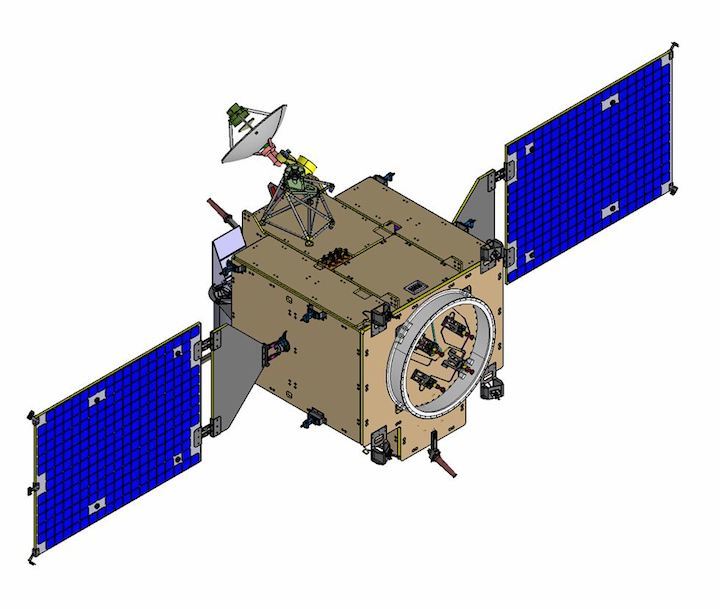19.12.2017

| Seen above is the state-run Korea Aerospace Research Institute's (KARI) illustration of its lunar orbiter. Elon Musk's SpaceX Falcon 9 rocket will launch the orbiter by 2020. / Courtesy of KARI |
By Park Hyong-ki
The state-run Korea Aerospace Research Institute (KARI) has selected SpaceX's Falcon 9 transporter rocket to launch its experimental lunar satellite by 2020, the researcher said Tuesday.
SpaceX is owned by Elon Musk, also the founder of Tesla. SpaceX and India-based Antrix participated in the bidding for KARI's rocket.
The Falcon 9, a two-stage rocket, will carry a payload of KARI's Pathfinder installed with high-end cameras, measuring and communication equipment into the moon's orbit.
During this experimental stage, which will be the first of its two-stage lunar satellite mission, KARI will be working with NASA in the U.S. to acquire technologies and skills to navigate and communicate with an unmanned space probe around and into the moon.
The Korean researcher will also seek to develop its own rocket for this future launch of the probe.
This is likely to happen after the end of the first experimental stage in 2020 when the Falcon 9 successfully launches the Pathfinder lunar orbiter to take pictures of the moon and gather data.
The budget for the Pathfinder mission is around 200 billion won, which includes technology acquisitions including navigation, communications and rockets thrusters for lunar probe landing.
KARI said it is basically following how India launched its lunar orbiter and rover.
"India also at first worked with NASA to acquire the technology to launch an orbiter with its own rocket," said Choi Seok-won, who is in charge of KARI's lunar satellite program.
Korea's satellite technology is among the world's best.
However, its satellites have never traveled as far as the moon's orbit.
If the Pathfinder mission goes according to plan and it travels to the moon, it would mark a milestone for Korean aerospace, Choi noted. The distance between the Earth and the moon is more than 340,000 kilometers.
The second budget to build its rocket for launching its lunar probe with an exploration rover will largely depend on this first mission, KARI said.
In 2012, SpaceX's Falcon 9 delivered a commercial cargo spacecraft to the International Space Station.
The Falcon 9 with KARI's experimental lunar orbiter will be launched from Cape Canaveral in Florida.
Quelle: The Korea Times
